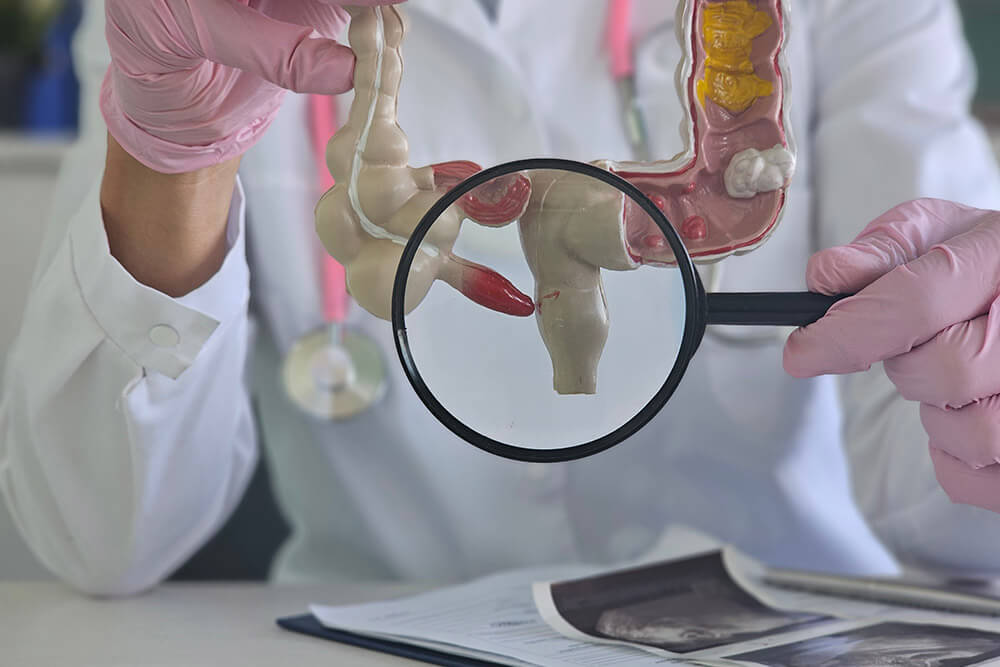What Is Acute Posthemorrhagic Anemia?
Acute posthemorrhagic anemia occurs when your body loses a large volume of blood rapidly, overwhelming its ability to produce new red blood cells. The sudden drop in oxygen-carrying cells can lead to fatigue, dizziness, shortness of breath, and other symptoms. This condition is classified under ICD-10 code D62.
Common Causes and Risk Factors
- Severe trauma or injuries causing heavy bleeding
- Gastrointestinal bleeding (for example, from ulcers or diverticula)
- Excessive bleeding during surgery or childbirth
- Use of anticoagulant (blood-thinning) medications
- Inherited or acquired bleeding disorders
Signs and Symptoms
- Pale or cool skin, especially on the hands and feet
- General weakness or fatigue
- Rapid or irregular heartbeat (palpitations)
- Dizziness, lightheadedness, or fainting
- Shortness of breath, particularly during activity
- Headaches or difficulty focusing
How Dr. Rishi Diagnoses Acute Posthemorrhagic Anemia?
Dr. Rishi Chadha uses a step-by-step approach:
Medical History and Physical Exam
He reviews your recent blood loss events (injury, surgery, GI bleeding), current medications (especially blood thinners), and symptoms like fatigue, dizziness, or shortness of breath. A thorough physical exam checks for pale skin, rapid pulse, and signs of active bleeding.
Blood Tests
Complete Blood Count (CBC) evaluates hemoglobin, hematocrit, and red cell indices. Reticulocyte count measures new red blood cell production. Iron studies (serum iron, ferritin, TIBC) help determine iron deficiency versus acute loss.
Stool and Urine Tests
- Fecal occult blood test (FOBT) to detect hidden GI bleeding.
- Urinalysis if hematuria is suspected as a bleeding source.
Endoscopic and Imaging Studies
- Upper endoscopy (EGD) to inspect the esophagus, stomach, and duodenum for ulcers or varices.
- Colonoscopy to evaluate the colon for polyps, tumors, or inflammatory lesions.
- CT scan or abdominal ultrasound when bleeding may originate outside the GI tract or to locate deep tissue bleeds.
Advanced Diagnostics (If Needed)
Capsule endoscopy for hard-to-reach small-bowel bleeding, angiography to pinpoint active hemorrhage, or rarely bone marrow biopsy to assess marrow response when reticulocyte response is inadequate.

Frequently Asked Questions
What is the ICD-10 code for acute posthemorrhagic anemia?
The ICD-10 code is D62. It specifically denotes anemia due to sudden, large-volume blood loss.
How fast can anemia develop after bleeding?
Symptoms can appear within hours to a few days, depending on how much blood you lost and how quickly your body compensates.
What's the difference between acute and chronic posthemorrhagic anemia?
Acute posthemorrhagic anemia results from a rapid, significant blood loss. Chronic posthemorrhagic anemia develops gradually over time due to slow or repeated bleeding.
Can I recover at home?
Mild cases may improve with iron-rich foods, hydration, and rest, but you should always consult Dr. Chadha first to rule out ongoing bleeding and confirm the right treatment.
Will I need a blood transfusion?
That depends on the volume of blood lost, your symptoms, and your hemoglobin level. Dr. Chadha will assess you and recommend a transfusion only if it's necessary for your safety.
Are endoscopic procedures painful?
No. Endoscopy is performed under sedation or anesthesia. You'll be comfortable and monitored throughout the procedure.
Do I need follow-up tests?
Yes. Dr. Chadha will order repeat blood work (CBC, reticulocyte count) and, if needed, imaging or endoscopy to ensure bleeding has stopped and you're recovering.
Can medications make bleeding worse?
Certain drugs'like blood thinners can increase bleeding risk. Dr. Chadha will review your medications and adjust or pause them safely if needed.
How long does recovery take?
Most patients begin to feel better within a few weeks once bleeding is controlled and iron levels are restored. Full recovery can vary based on overall health and the cause of bleeding.
Does insurance cover anemia care?
Most insurance plans cover diagnostic tests, treatments, and procedures for anemia. Our office staff at GastroDoxs can help you verify your benefits and handle preauthorizations.











